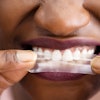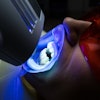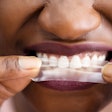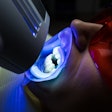A state court in New Jersey has found in favor of Merck in the Rosenberg v. Merck case, rejecting the claims of a woman who blamed her dental and jaw-related problems on her Fosamax use.
The plaintiff, Allison Rosenberg, 67, said she used Fosamax from 1999 to 2006 and that she suffered various jaw problems and complications following a tooth extraction in December 2005.
At trial, Merck presented evidence that it acted responsibly in researching and developing Fosamax and in monitoring the medicine since it has been on the market, the company said in a press release. The company's clinical trials, conducted both before and following approval, have involved more than 28,000 patients, including more than 17,000 treated with Fosamax.
"We believe the evidence showed the company acted properly, and that Fosamax did not cause the plaintiff's dental and jaw problems," said Christy Jones of Butler, Snow, O'Mara, Stevens & Cannada, outside counsel for Merck. "Unfortunately, the plaintiff had medical conditions that can cause people to develop jaw and dental problems, regardless of whether they were taking Fosamax. She had an extensive history of periodontal and endodontic treatments, and she took a number of powerful steroid medications that are known to suppress the body's immune system and inhibit the body's ability to heal."
This is the fourth such case against Merck to be tried in court so far. The first case, Maley v. Merck, resulted in a defense verdict for Merck in May 2010. The second, Boles v. Merck, initially resulted in a mistrial in September 2009; a retrial in June 2010 resulted in a plaintiff verdict and a jury award of $8 million, which has since been reduced to $1.5 million. In November 2010, Merck prevailed in the third case, Graves v. Merck.
As of September 30, 2010, about 1,180 related cases, which include approximately 1,560 plaintiff groups, had been filed and were pending against Merck in either federal or state court.



















